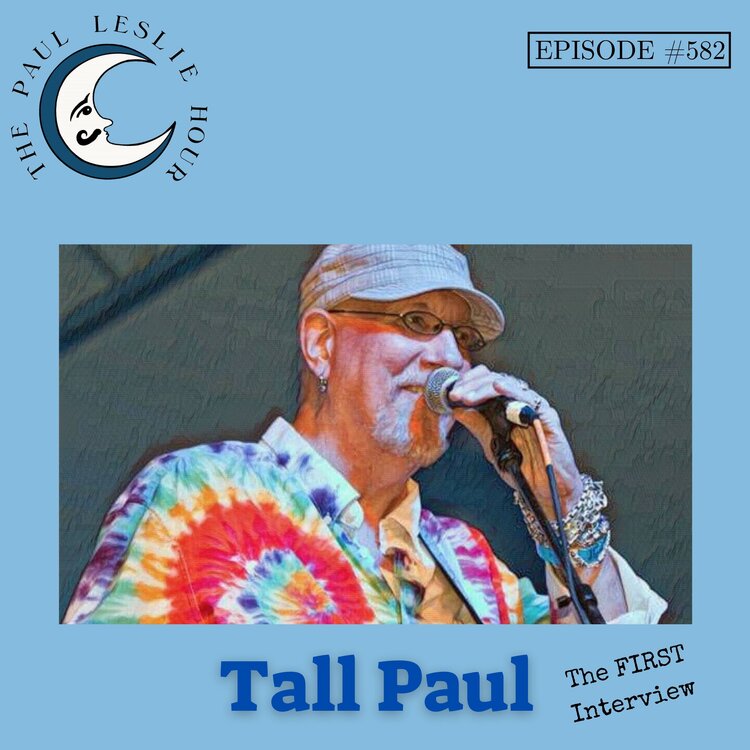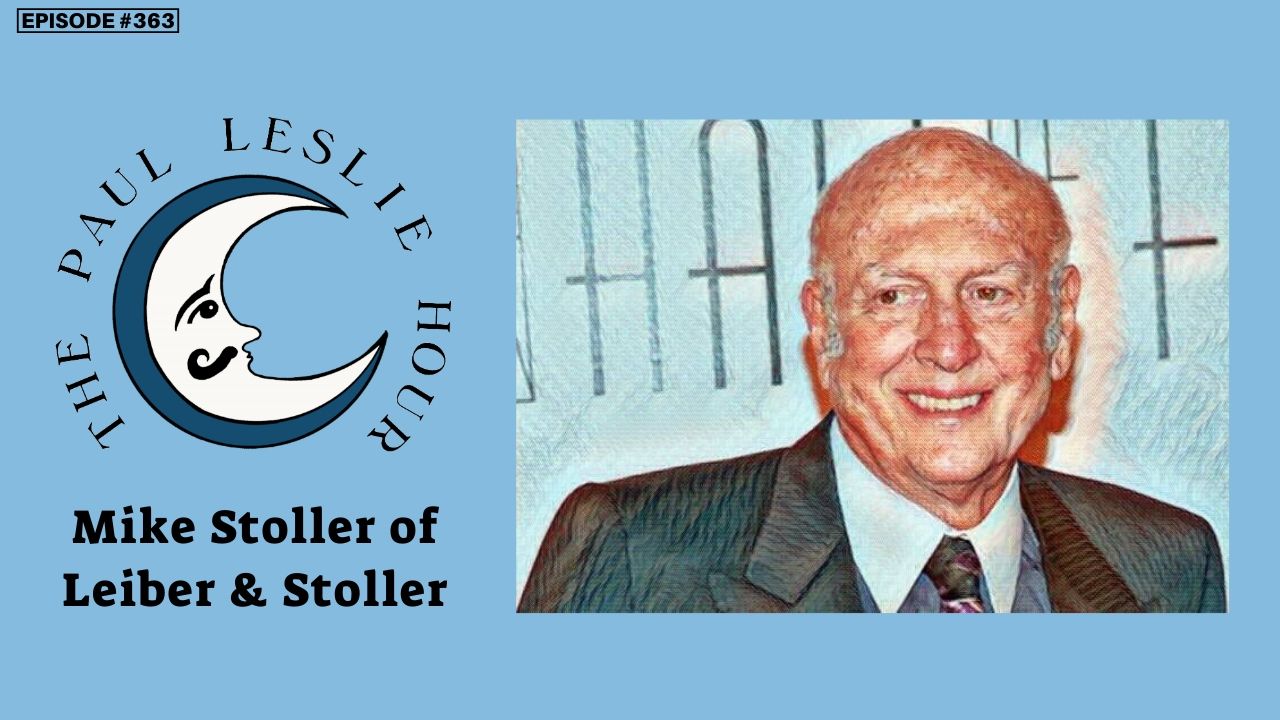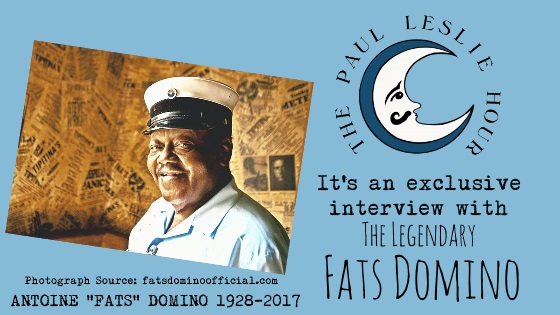The Beth Petty of the Hank Williams Museum Interview is featured on The Paul Leslie Hour. Interview originally broadcast in 2009.
Are you here?
Thank you for being here, tuned in to The Paul Leslie Hour. We are pleased to present the Beth Petty interview as we say “Hats off to Hank!” You see Beth Petty is something of a Hank Williams expert, as you’ll soon find out.
The year 2023 is the Centennial year of Hank Williams, 100 years since his birth and well…let me tell you a bit more.
On this episode we’re taking you to Montgomery, Alabama for an interview focusing on the great Hank Williams considered the Father of Contemporary Country Music. Born on September 17, 1923 in Mount Olive, Alabama, Hank Williams began playing music after his mother gave him a guitar at 8 years old. Hank Williams learned his singing style in part from a blues street singer named Rufus “Teetot” Payne.
Williams went on to perform across the United States. He had many hit songs and was a favorite on radio and television. Hank Williams was and perhaps is the greatest country star of all times. Hank Williams passed away on January 1, 1953 at 29 years old.
Yet Hank Williams music continues to get new fans. His songs are known by everyone. You cannot get much more “American” in music than Hank Williams. His songs were covered by countless musicians from Johnny Cash to Willie Nelson. Patsy Cline to Jimmy Buffett. George Strait. George Jones. They all recorded his songs.
Even when people do not know the name Hank Williams, people from around the globe know the songs…”Your Cheatin’ Heart,” “There’s a Tear in My Beer,” “I’m So Lonesome I Could Cry,” “Jambalaya,” “I’ll Never Get Out of This World Alive,” and of course “Hey Good Lookin’.”
Hank Williams’ legacy lives on at the Hank Williams Museum in beautiful Montgomery, Alabama where this interview was recorded. On this episode we are joined by Beth Petty. She’s the manager of the Hank Williams Museum. It is a museum filled with photographs, press clippings, and numerous personal artifacts belonging to the late Hank Williams including his personal Nudie suits, instruments and many fascinating exhibits.
We want you to be sure to go to http://www.thehankwilliamsmuseum.net There will be some upcoming event for Hank 100. You’ll find out about it there.
Please also consider supporting The Paul Leslie Hour – yes, keep us going and proudly independent. Go right here, and give yourself and others the gift of stories.
I think everyone’s ready to hear the interview with Beth Petty, all about one of the most important figures of music – for all times. Let’s listen. Together.
Help Support the Show Here
Subscribe/stream on the following platforms:
• Spotify• Apple • RadioPublic • Audible • iHeartRadio •
In this episode, we are joined by Beth Petty, the manager of the Hank Williams Museum in Montgomery, Alabama. We discuss Hank Williams’ enduring popularity and the museum’s comprehensive collection of artifacts. Beth shares the international appeal of Hank’s music and invites listeners to the upcoming birthday celebration in September. The museum continues to grow its collection through generous donations and welcomes anyone with Hank Williams memorabilia. Beth expresses her gratitude and looks forward to welcoming everyone to the museum.
The Official Transcript
The Beloved Star: Hank Williams’ Influence on Country Music
[3:43] It is with great pleasure we welcome Beth Petty of the Hank Williams Museum in beautiful Montgomery, Alabama. Beth Petty is the manager of the Hank Williams Museum. So first of all, why do you think Hank Williams was such a beloved star of country music?
Thank you for coming and talking with me. I appreciate the opportunity.
Hank Williams is a worldwide icon, all over. He made such great music and it’s simple music. It’s the music that people can relate to back then and still today. So his death has been 56 years now, and I think that his music still continues on. It still will after 50 more years.
The Influence of Rufus “Tee Tot” Payne on Hank Williams
[4:20] I was hoping maybe you could tell us a little bit about Rufus “Tee Tot” Payne and some of the styles and people who were an influence on Hank Williams. The reason I ask that, so many people say Hank Williams was an influence on them. [4:33] But going back, I haven’t heard much about who influenced Hank Williams.
You know, Tee Tott was a man, a black street singer that taught Hank how to moan the blues and how to play some guitar chords. And we think that it started back as early as age 10 in Greenville, Alabama.
“Tee Tot” Rufus Payne happened to move to Montgomery in 1937 at the same time the Williams family did. So, he also continued here on the streets of Montgomery with Little Hiram, as he was known as.
They played on the streets and they earned a few cents a day by people giving them money to listen to them. But we don’t know a lot about Tee Tot. No photos of him.
He had one son, Henderson Payne, who passed away about a year or two ago.
We did get to know him pretty well. Tee Tot’s buried here in Montgomery. He died around 1939. Apparently he was sick when he moved to Montgomery because he died in a hospital.
We don’t really know a lot of history of that man, but we do know that he was a big influence on Hank Williams.
Hank Jr. acknowledges that today and has a song about Tee Tot on one of his CDs, “The Almeria Club” CD.
The Birth of the Hank Williams Museum
[5:40] How did the idea for the Hank Williams Museum come to be?
My father, Cecil Jackson, is the president of the Hank Williams Memorial Foundation for Montgomery.
And as far back as I can remember, especially when I was in high school in the 70s. [5:56] My father laid out some newspaper clippings and records. And, you know, I grew up with all those old records of Hank and a lot of the old country stars. I guess he was organizing some pictures and things, and he laid them out onto a table. I walked up next to him and asked him why he was keeping all that old junk.
His reply to me was, “well, I hope those will go into a museum one day.” Well, he didn’t think that he would be the one to do the museum, but he was, in fact, that person. It was his dream when we opened this museum about ten years ago, a little over ten now. But back as early as the 70s and 80s, he still does, and did then take care of memorial services at the Hank Williams grave. Always on Hank’s birthday and always on New Year’s Day, we place wreaths there.
In 1991, he played a very big role in getting the life-size bronze statue here in Montgomery, which is across the street from the city auditorium where Hank’s funeral services were held. The funeral was the largest in the South.
It was 20,000 to 25,000 people attending. Then around in 1993, he helped get the Boyhood Home started in Georgiana. He served on the board of directors for the International Fan Club.
[7:11] He also helped get the postage stamp of Hank Williams. In 1997, got together with the state and had the Lost Highway. There’s a signage on Interstate 65 from exit 179 to exit 114 that’s called the Hank Williams Memorial Lost Highway. And my father had a big part of getting that done from the state.
It started the foundation in 1997, and we worked very hard for a little over a year getting all the artifacts together and opened this museum in February of 1999. So my dad is the reason that we’re here. I don’t think that he would be recognized as much in Montgomery if my father had not done this.
People come from all over the world to see this, and I ask them daily as guests come in our door.
If you look at our register book, they come from Norway, from England, Japan, Canada, all over UK.
It’s just amazing. These people might not even speak English, but they can sing, “Hey Good Lookin’,” because they love Hank over in other countries. He did some touring in other countries, by the way. did Germany, Japan, and Canada as well as all over the United States during his career.
[8:23] But Hank is well-loved all over the world and we ask people all the time, where are you from first of all? And they’ll tell us wherever they’re from, maybe you know across the ocean or it could be here in the in the United States. And I always ask them, well what brings you to Montgomery?
And they say, “well Hank Williams did.” I’d like to say that I hope that one day Montgomery can be noticed and I think that it’s on its way but when you say Montgomery you think of Hank like you say Memphis you think of Elvis.
[8:50] What can people from all around the world that come to see this museum, what can they see here?
As you walk in the door, you’ll see an eight-foot wooden Indian, which is Kaw-Liga, and we have a gift shop in the front. Also, as you walk around the corner of the museum, we have about 6,000 square feet here in this hundred-year-old building. We’re located downtown Montgomery, but we have Hank’s 52 Cadillac he passed away in. We have about eight rooms full of his other things like his suits, custom-made suits from Nudie.
We have some of his double-vested suits. We have his tie collection, his custom-made boots, hats, overcoats, smoking jackets, one of his guns. We have a shoeshine kit he used as a kid on the streets.
We have one of his ’37 Gibson guitars.
[9:37] Hank Jr. has a showcase and Jet Williams has a showcase, Merle Kilgore, some of the bands, the Driftin’ Cowboys have showcases.
We have one of the steel guitars from Don Helms, who was Hank’s steel player. We have the most complete collection that’s ever been on display before and very proud of that.
We’re also still collecting. Every day we hear from somebody that has something that they want to place here on display.
We’re about to add to our collection, the sofa that was in the house in Nashville at Hank and Audrey’s home. We’re really excited to be getting that new item, and we hope to have it on display and in place by the birthday celebration, which is coming up September the 18th and 19th and 20th of this year.
[10:21] It’s amazing how Hank Williams’ music has lasted so long. I was wondering, why do you think that Hank Williams’ music has survived and is still loved after all these years?
So many artists and songwriters out of Nashville and just about anywhere, out of Texas, too, we see a lot of those people come in and I always hear the same story or similar stories from these artists.
They say, “if it hadn’t been for Hank Williams, I’d have never picked up a guitar as a child.”
So they were all influenced at early ages and his music is instilled in you.
You just know, “Hey, Good Lookin’.” I mean, it’s like our anthem, you’re just born knowing it. But you also have these people, they’re so inspired by Hank, they want to be like Hank. I think that they want to write the same kind of material that he wrote, but I think Hank wrote it all.
One of the other things I’d like to say is the man that preached his funeral here in Montgomery 56 years ago, he made a statement to the world during that sermon that as long as we have America, we’ll have Hank Williams music to inspire us. And what a true statement that was. I think it’ll always be around.
And Hank wrote most of his music, too. That was something that Elvis didn’t do, was write any music.
George Strait never wrote any of his own music, but Hank did write most of his material.
[11:38] Just you personally, what is it that you like about Hank Williams?
You know, I love Hank Williams. I listen to his music here seven days a week. I go out on my radio if there’s a Hank song on, I listen to it. And it doesn’t matter if it’s Hank, it’s just any artist that might be covering his music. So many of the artists do cover his music.
Carrying on Hank’s Legacy
[11:58] So I grew up with the records in the house. I grew up with Hank’s record collection just about in front of me. My dad listened to his music. This is a labor of love. My father had a dream, and I think that I’m here to carry that on. So I really hope that my family will continue on, and there’s many younger generations coming up, and I’d like to try to teach them about Hank as much as I can.
I’d like to let them know that he wasn’t a fallen-down drunk that he was portrayed to be. We think that Hank was wrongfully accused of a lot of things, and we like to try to portray Hank’s better side here in the museum.
We know he was a good man. He wrote a lot of good music. They might have had their faults, but I say, I have two different sayings that I like. First of all is, the truth is bad enough without all the lies.
And we also say that, you know, “Hank’s accomplishments way outweighed his downfalls.” We’d like to try to carry this on, the family tradition, as we call it, and we’re good friends with Hank Jr. He endorses what we do here.
We have a love for Hank. You know, it’s an old cliche, but hey, if you ever listen to one of Hank Williams’ songs, you’re hooked and that’s what happened to me.
From the artifacts and from the people that knew Hank, how could you answer the question, what was Hank Williams like?
[13:13] Mmm, it’s a hard one because I didn’t know him personally. My father did know him. He met him several times.
[13:20] From what I hear from people. He was a good man. He liked Cadillacs, He liked material things because the suits that he had here that we have are very nice. Expensive suits from the nudie designer from Hollywood, but I think that Hank was a good man. He had a good heart. He would help anybody that needed it. He loved music. You know, I just I wish that I could have met him, I’d love to shake his hand.
Invitation to Hank Williams’ Birthday Celebration and Memorial Events
Thank you so much for making the time to do this interview. Before we go Is there anything you’d like to say to all the listeners out there? [13:48] We have listeners from all over the world, not unlike Hank Williams fandom.
We have a birthday celebration coming up on September the 17th through 20th. 18th through 20th, excuse me, and I’d like to say we invite the public to come out to join us for that, We have a lot of people over the Atlanta area that do come over, but we have a good time. We have live music here in the museum in our music hall upstairs. We have a great singer, Artie Hill coming from Baltimore, and we have a guy from Texas named Jake Penrod. Somebody from Georgia, Joey Allcorn. A local Montgomerian and very famous for his music Andy Norman, Joe Jones. [14:28] We have a guy from Iowa coming Frank Tuma Sorry if I’ve left anybody out. But we have a great lineup a tribute show to Hank and if you’d like more details just go to our website or give us a call.
Our number here is 334-262-3600. We’re located downtown Montgomery, 118 Commerce Street. I would be glad to talk to any of the fans, especially if you have any memorabilia or any artifacts that you found up in your grandparents’ attics or anything, you’re cleaning out some old boxes, give us a call. We’ll love to give it a new home. Also on New Year’s Eve and New Year’s Day, we do a celebration in Hank’s memory for for his death anniversary and love to invite the public to come to that as well.
No plans yet have been made for the event this coming time, but it’s usually basically the same.
So, I’d love for anybody to come around and see us as well. We’re open seven days a week.
[15:20] Thank you so much.
You’re welcome. Thanks for having me.



